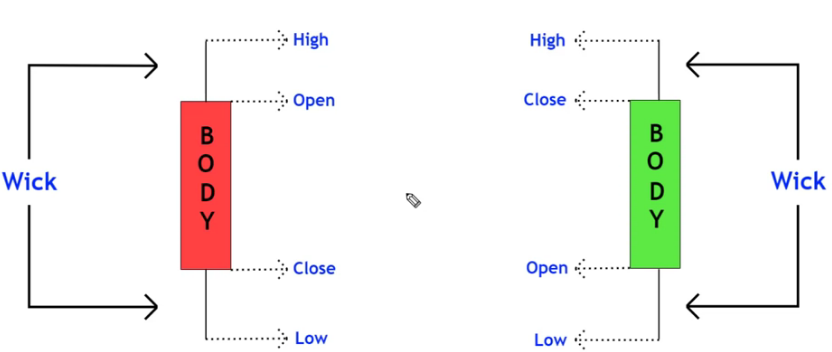I’ve been on some sort of an audiobook binge lately.
YouTube used to be my go-to app on my commutes, but now it’s Audible.
I think at some point I got tired of the whirlwind of directions that the YouTube algorithm takes you on. There’s so much to see, enjoy, and learn out there that my brain just gets overwhelmed. I spend so much time on my commutes anyways, I figured I’d make the most of it by actually learning something. Not to say I don’t learn things from YouTube videos. There are so many great resources for learning all manner of things via YouTube, but given the myriad things your phone does, it’s so easy to get distracted.
Which brings me to my next point: distraction.
I randomly chanced upon a video (thanks YouTube) that was reviewing a standalone, dedicated music player and its benefits over a smartphone. Yes, an MP3 player. In 2023. The reviewer addressed the inevitable question of why would you need a standalone media player when you’ve got the smartphone that can literally do everything? It’s precisely because it can do everything that it loses its utility, ironically as it may seem.
You see, today we all live fighting a war of attention.The FANG companies and all its wannabes employ sophisticated algorithms to make it ever difficult to tear ourselves away from our phones. While I’ll be the first to say I’ve gained a lot from being a YouTube Premium user – bingeing on all manner of YouTube videos over the years – I’ve found it made me scatterbrained and losing focus. The things I do learn from YouTube videos are in a scattershot fashion and not “organized” as such. In short, longtail-style content consumption, the x-axis being infinitely long with so many topics. Tons of breadth but no depth.
I opted to dive into books – audiobooks more specifically – as an alternative to YouTube. I liked the production quality, uniformity of presentation, which isn’t something you can expect from YouTube as individuality is what makes creators who they are. I’ve managed to finish three audiobooks (The Pathless Path, The Surrender Experiment, Disrupting the Game) in a few days’ time, always listening to them at a minimum of 1.7x to 2.2x tops(tip I gained from Ali Abdaal).
As usual, I wanted to write down interesting tidbits, learnings, and takeaways for future reference. I would stop and dial down the speed to 0.7x or 1x and type them out feverishly on my Obsidian app, rewinding multiple times to get the text down verbatim. Alternatively I also used the Audible clip feature, which lets you capture the past 30 seconds or so of past audio.
Creating this secondary content derived from the primary content is great; after all, you don’t want to consume all this content only to forget all of it later on. But with all this secondary content in different forms and on different platforms (Obsidian, Audible, Ticktick, etc.), you then create more work for yourself in needing to categorizing, distilling them. Tasks that fall within Tiago Forte’s BASB(Building a Second Brain for the uninitiated) and PKM mandate. I’m still working through / trying to find the best way to create a streamlined process to optimally capture, organize, distill, express (credit to Tiago Forte again) the content I consume. But of course it’s a work in progress.
Consuming all this content got me thinking about reviews. What is the best way to review this content that seems relevant to me and impartial? Of course, I am the one writing the reviews so I can’t not be impartial, but if there was a way to have a systematic review method that would enable my reviews of different content be fair and objective against each other. To explain, without applying uniform criteria by which content is reviewed, the standards will vary for each piece of content reviewed. That would naturally make each review incomparable to that of another piece of content. I mulled over this for a while and came up with the following 5 criteria by which to review content.
- Entertainment: how entertaining is it?
- Resonance: how much did the content resonate with me? how eye-opening / wonder-inspiring / idea-generating / worldview-altering / new conversation-starting was it?
- Originality: how original was it i.e. to what extent was it not a re-hash of existing content?
- Coherence: to what extent did the story, plot, structure, progression lend themselves to forming a unified whole that was comprehensible, compelling, and accessible? Or conversely, was it esoteric and/or arcane?
- Recommendability: to what extent would I recommend this piece of content to others? In modern social-media speak, how ‘Instagrammable’ is the content? Put another way, how relatable is this content? Would it be helpful / entertaining / useful to others? Best-sellers, box office hits, and chart-topping singles become what they are because they are shared and recommended. It travels. To borrow the funnel model, the content that ultimately get passed through the lower funnel are few and far in between.
My idea is to use a 5-point Likert scale for each of the above ranging from ‘Disagree strongly’ to ‘Agree strongly’, and get the average total score. I think doing this will let me come to a more balanced and generally more uniform approach to how I rate and review content. I want to try this out and tweak / revise as necessary starting with movies, books, games, and other forms of content consumed. Each of the five categories could be tweaked slightly to account for categorical differences (e.g. gameplay mechanics when reviewing a game for example).



